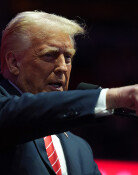Washington warns global businesses in S. Korea about legal risks
Washington warns global businesses in S. Korea about legal risks
Posted July. 24, 2021 07:18,
Updated July. 24, 2021 07:18
The 2021 Investment Climate Statements issued by the U.S. State Department on Wednesday (local time) points out that leaders of global businesses are highly likely to be faced with legal risks such as arrests and indictments in South Korea. The report provides U.S. businesses with a comprehensive analysis of the level of business-friendliness of 170 countries when they consider making any overseas investment.
The statements is highly critical of South Korea’s legal and regulatory issues while appreciating its COVID-19 response system, political stability, public safety, world-class infrastructure and a highly skilled labor force. As for its legal system, it writes, “The CEOs of local branches can be held legally responsible for all actions of their company and at times have been arrested and charged for their companies’ infractions.” It is a warning message that foreign CEOs may often be faced with criminal action in South Korea, which rarely happens in other advanced nations. For example, GM Korea CEO Kaher Kazem were banned from leaving the country on charges of illegal hiring as many as twice in the recent two years.
The report says that eighty percent of all new bills in South Korea are supposed to go through the National Assembly before written in law without any rigorous assessment made on possible impact, adding that legal ordinances are made public despite lack of opinions heard from industrial insiders and other related parties. It implies that global businesses in South Korea should stay cautious about any change in the business environment following unexpected acts and ordinances issued by the legislative body and the administration for domestic political and social reasons.
It is no news that the South Korean regulatory system ranks the lowest in terms of competence among those in advanced countries. What’s worse, the regulatory framework has become ever more unfavorable to businesses over time. A great example of a worsening business environment in South Korea is the introduction of an act to punish business owners and CEOs for any severe industrial disaster related to their companies including deadly accidents by giving them more than one year’s imprisonment or a fine of more than 100 million won. It has been reported that such a heavy legal burden on the shoulders of CEOs makes it hard for global businesses to find any applicant who is willing to serve as a leader of their South Korean branch.
The decrease of direct overseas investment in the South Korean market over the recent two years is attributable to a poorer regulatory system, too high corporate tax, etc. Nevertheless, the ruling party with a majority of the legislative seats taken is hell-bent on strengthening regulation by proposing to tighten the serious accidents punishment act, which has not yet been put in force. If it is the case, it will be hard not only to attract overseas businesses to the South Korean market but also to stop South Korean companies from choosing an exodus.






